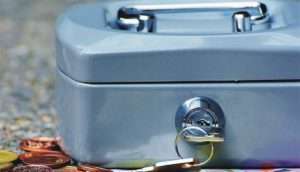Work Expenses
Did you know you can reduce your tax liability by claiming work expenses on your tax return? With the right knowledge and a reputable accountancy firm to help, you can claim expenses directly related to your job that your employer does not reimburse. As the cost-of-living bites, be sure you don’t pay more than you have to. Let’s find out more.
What Work Expenses Can I Claim?
You might be able to claim tax relief if you use your own money for things that you must buy for your job and only use these items for work-related purposes. You cannot claim tax relief if your employer either gives you all the money back or you want something different to what’s provided by the employer – such as a newer or higher-end laptop.
Examples of expenses you might be able to claim tax relief on include:
- Cleaning, replacing or repairing uniform or specialist clothing, such as safety boots
- Repairing or replacing tools for business such as electric drills and scissors
- Professional subscriptions or fees
- Work-related travel and subsistence – although regular commuting isn’t usually covered
- Mileage if you use a private vehicle for work – but not for regular commuting
- Additional expenses that you incur for working at home, for example the extra cost of gas and electricity for your workspace. You can only claim this if your job requires you to live far away from your office or your employer does not have an office. You can’t claim if you choose to work at home when your employer has an office.
- Business telephone calls. These can be claimed in addition to working from home tax relief, so it’s worth speaking to a tax advisor to ensure you’re not missing out
How Do I Claim Work-Related Expenses?
One of the most important things to remember when it comes to work expenses is that your record keeping must be impeccable. After all, you’ll need a way to prove your tax exemptions to HMRC, otherwise your claims might be rejected. Keep all receipts for expenses over £10 and a mileage log for any business driving. Make sure any social travel is not included. Try to keep track of expenses as they occur so that you have the documentation needed at any given time.
With all the required evidence, it’ll be much easier to fill out your self-assessment tax return. Complete the Employment section, reporting income from your employment and claiming allowable expenses. All expenses will be totalled and entered onto the tax return, lowering your overall taxable income for the year. This could result in a tax refund or a lower amount owed.
When claiming vehicle expenses, you’ll need to fill out the P11D form. Be sure to claim mileage at the current HMRC-approved mileage rates. As it stands, mileage rate for 2023 remains at 45p per mile for the first 10,000 miles and 25p per mile after that for business-related driving. For motorcycles, the rate is 24p per mile.
Paying tax can be complex, but with the right support, you could benefit from significant tax savings each year. If you’re looking for a reliable tax accountant, contact Ibiss & Co today. Our tax advisors can help you with all tax planning issues and will ensure your tax liabilities are met. Our offices are located in Barking, Tooting and Walsall, so don’t hesitate to get in touch.




